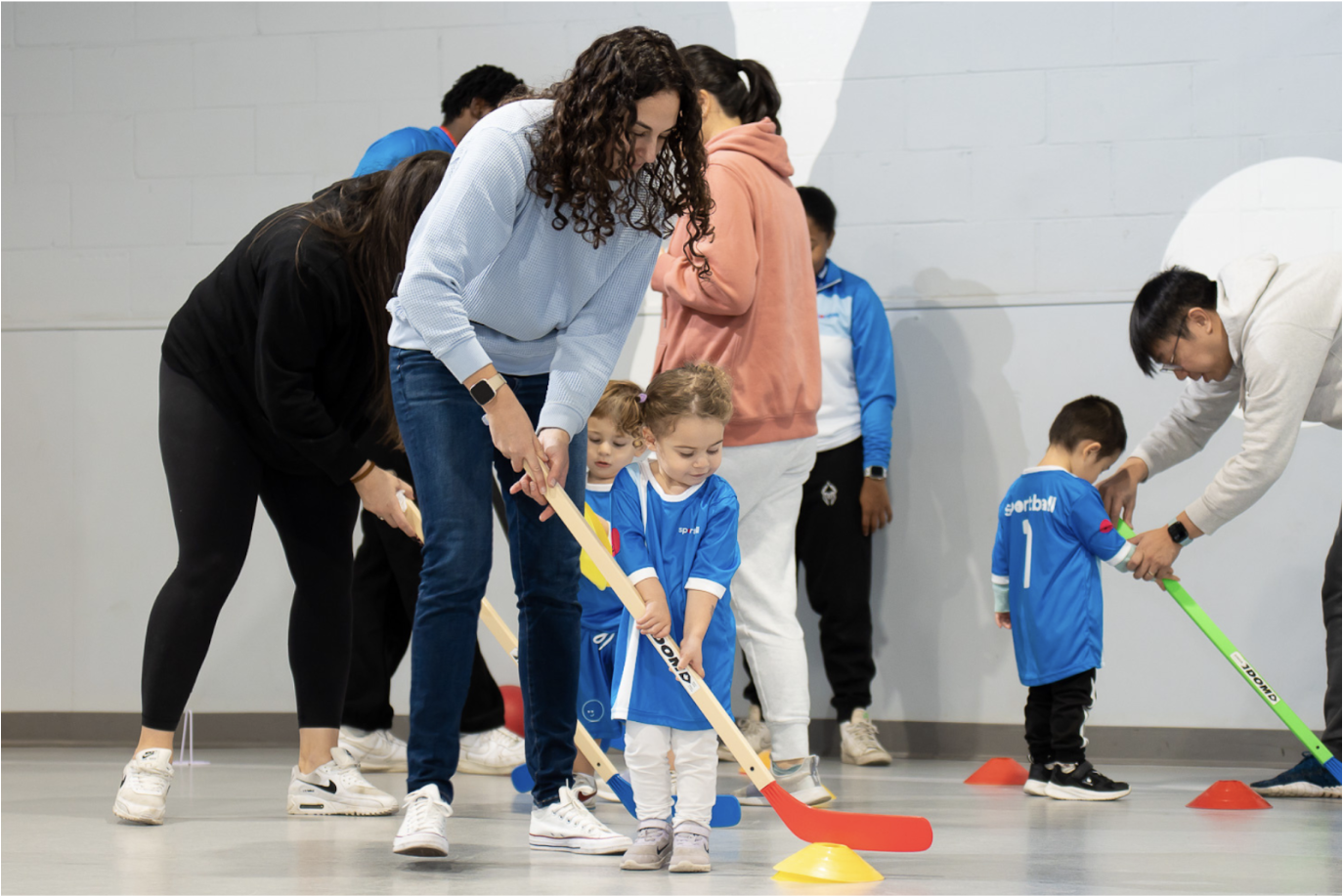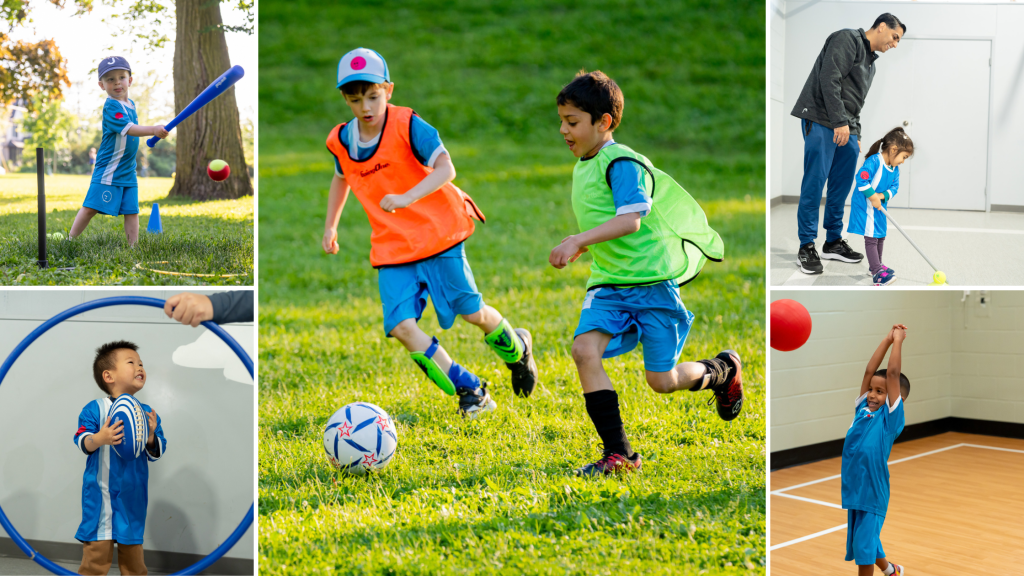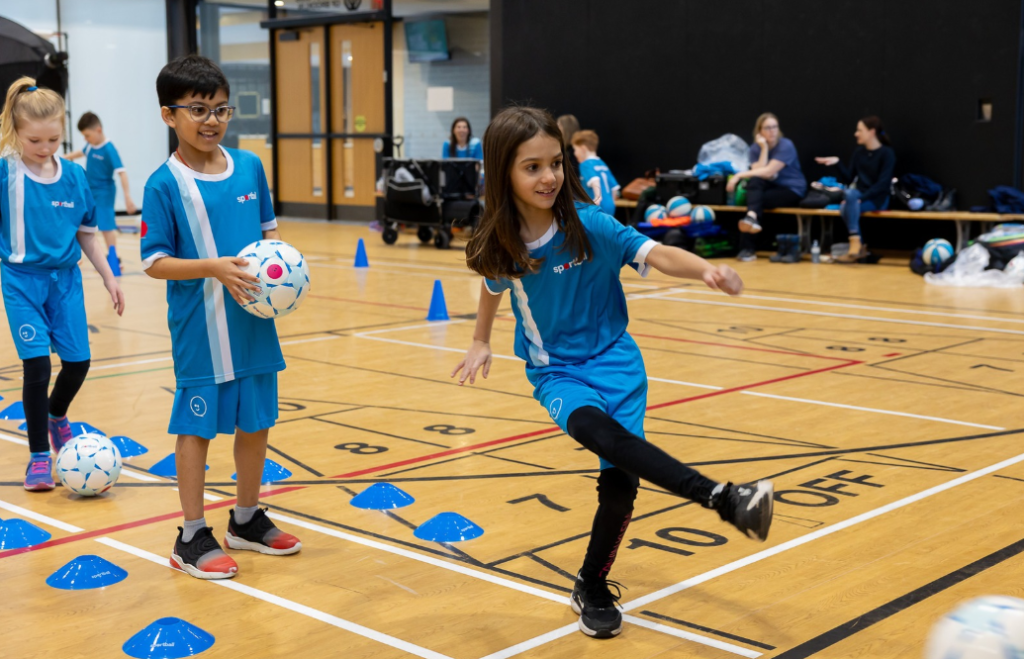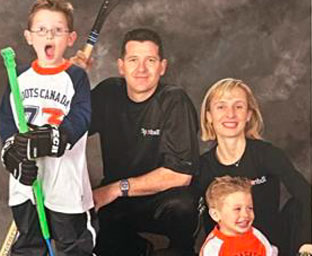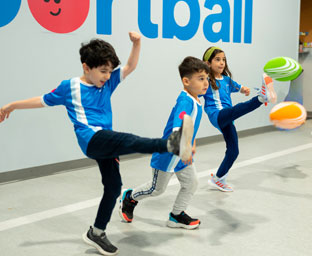As a parent, few things are more rewarding than watching your child grow through sports. From gaining physical literacy to developing confidence, youth sports can be a powerful experience. But being a good sports parent doesn’t just mean showing up on game day.
In this article, we’ll walk through practical ways to be a supportive sports parent and foster a positive experience for your child both on and off the field.
Understanding your role
Being a supportive sports parent means recognizing that the game belongs to your child, not to you. While it’s natural to feel proud of that game clinching play, it’s important to separate your own identity from your child’s performance. Children thrive when they feel ownership of their activities, rather than pressure to live up to parental expectations.
Research from Frontiers in Psychology shows that youth who perceive autonomy-supportive parenting exhibit higher levels of intrinsic motivation and enjoy sports more. Parental pressure and control, by contrast, can diminish motivation and increase frustration or withdrawal.1
Put another way, when parents stop focusing on and praising outcomes (ex. winning, scoring), kids have more fun and are motivated to keep playing the game.
Creating a Positive Environment
The sports field should be a place of joy, not stress and that starts with how parents show up:
- Support without pressuring – Encourage your child to do their best, but avoid setting performance-based conditions.
- Mind your sideline behavior – Cheer positively, avoid criticizing, and remember that young athletes are still learning.
- Build relationships – Work collaboratively with coaches and other parents to create a supportive community.
Programs like Sportball programs are designed with this philosophy in mind, focusing on building skills in a fun, non-competitive environment.
Communication Strategies
After the game, it’s tempting to dive into feedback. But often, children benefit more when parents listen first.
- Ask open-ended questions: “What did you enjoy about today’s practice?”
- Pay attention to non-verbal cues: sometimes kids need a break before talking about the game.
- Offer constructive feedback sparingly, if at all, and always balance it with encouragement.
As John O’Sullivan, founder of the Changing the Game Project, emphasizes, the best words parents can say after a game are: “I love watching you play.”2
Setting Healthy Boundaries
Youth sports should fit into family life, not take it over. Keep boundaries by:
- Setting age-appropriate expectations.
- Balancing sports with school, downtime, and family activities.
- Watching for signs of burnout, such as loss of interest or frequent fatigue.
Supporting Growth and Development
Sports are about more than scores. They teach resilience, teamwork, and character. Parents can nurture these lessons by:
- Emphasizing effort over outcomes: “Excellent effort at practice today!”
- Helping kids process wins and losses in healthy ways: “Great example of good sportsmanship today, regardless of the outcome.”3
- Celebrating small improvements and personal milestones: “I’m so proud of your improvement on your free throw! Practice in the back yard has really paid off.”
How do I know if I’m putting too much pressure on my child?
You know you are putting too much pressure on your child in sports if they show anxiety, lose interest, complain of stomachaches or headaches before practice, or seem fearful of disappointing you. Encourage effort, celebrate progress, and let enjoyment guide their participation, especially in the first year.
What should I say after a tough game?
After a tough game, say supportive words that focus on effort and growth. Tell your child, “I’m proud of how hard you played,” or “I love watching you compete.” Avoid criticism or focusing only on mistakes. Reinforce resilience by praising attitude, teamwork, and perseverance over the final score.
What are signs my child may be experiencing sports burnout?
Signs your child may be experiencing sports burnout include chronic fatigue, irritability, loss of motivation, frequent injuries, and declining performance. Emotional signs include anxiety before games, lack of enjoyment, and withdrawal from teammates. Burnout often shows when pressure outweighs fun, leading to physical and emotional exhaustion.
Moving Forward
At the end of the day, your role as a supportive sports parent is to help your child build lasting positive memories. By keeping perspective and encouraging balance, you’re not just raising an athlete, you’re raising a resilient, confident person with a lifelong love of movement.
| Do’s | Don’ts |
| Encourage effort and personal growth (“I love how hard you worked today”). | Focus only on outcomes like winning or scoring. |
| Cheer positively and respectfully from the sidelines. | Criticize, coach from the sidelines, or compare kids. |
| Listen first after games, asking open-ended questions. | Launch into immediate critiques or performance breakdowns. |
| Support balance between sports, school, rest, and family time. | Overschedule or pressure kids to specialize too early. |
| Celebrate progress, resilience, and sportsmanship. | Ignore signs of stress, burnout, or lack of enjoyment. |
For more guidance, explore the Sportball blog for resources on youth sports and child development or find a class near you today.
References
- 1Gao, Z. (2024). The role of parents in the motivation of young athletes. Frontiers in Psychology. https://pmc.ncbi.nlm.nih.gov/articles/PMC10800670/
- 2O’Sullivan, J. (2025). Our children become the messages they hear the most. Changing the Game Project. https://changingthegameproject.com/our-children-become-the-messages-they-hear-the-most/
- 3Dr. Kennedy, Becky (2021). Good Inside with Dr. Becky. https://goodpods.com/podcasts/good-inside-with-dr-becky-175993
